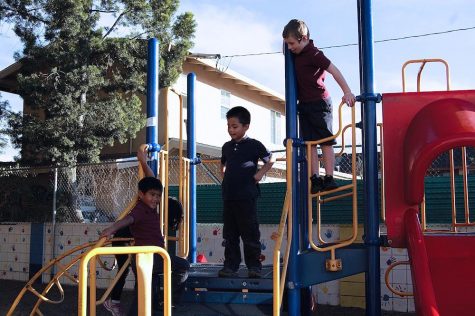Hassles of Homework
One of the most dreadful parts of school is being assigned stacks upon stacks of homework. It’s generally agreed that homework is not an enjoyable activity to spend time on. With 6-7 different teachers assigning work to take home and complete every day, the idea of overworking students becomes evident.
The GUSD guidelines for homework gives a maximum of 120 minutes for 7th and 8th graders as well as a vague idea of a progressive increase of homework time in high school. A general rule of thumb recommended by the National Education Association, however, is that students receive 10 minutes of homework per grade, meaning that an 11th grader should have 110 minutes of work; however, most students’ experiences suggest that this is not the case.
Recently, attention has been placed on the stress that high school students deal with. It is evident that high school, particularly the junior and senior years, spawn many unhealthy habits, habits like sleeping half of the recommended time. No student enjoys the idea of staying up late to complete assignments on a topic they already learned about.
While it is true that assigned homework may enforce lessons learned in the classroom, independant studying without assigned work would be just as effective, and, by giving homework to students, teachers are removing the responsibility of independent studying and instead forcing busy work that may not even reinforce the topic. Books like The End of Homework by Etta Kralovec and The Case Against Homework by Sara Bennett argue that homework is not only unproven in its effect on academic achievement, but also serves as a hindrance to students and takes time away from other nonacademic activities that would likely be more significant.
While it is true that repetition is a significant part of learning, that does not excuse assigning massive amounts of work for students to complete based on topics they rehearse through studying anyway. From this perspective, the idea of homework seems merely like busy work for students that wastes both their time as well as their teachers’ time by grading this homework.
According to a CNN article, there has been no direct correlation shown between the amount of time spent on homework and the grades students receive. Furthermore, the same article states that after 2 – 2½ hours, the learning value of homework greatly diminishes and becomes much less significant.
Assignments to complete at home are not the only way a student can practice the materials they’ve covered in school. The common idea is that by assigning homework, students are given more initiative to cover the materials again at home. However, by forcing students to do homework, teachers are removing the aspect of responsibility associated with repeating materials; by making the rehearsal of the materials mandatory, it removes the initiative that students must take to learn and master their school subjects.
Homework as it is given now does not serve its intended purpose and, if not removed outright, should at the very least be reduced to a maximum of two hours per night.







